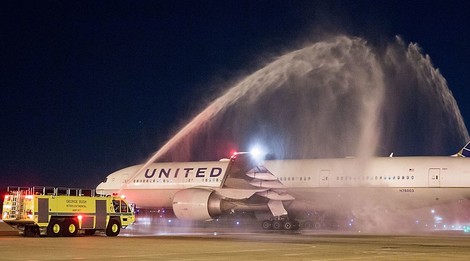Your podcast discovery platform
Curious minds select the most fascinating podcasts from around the world. Discover hand-piqd audio recommendations on your favorite topics.

piqer for: Climate and Environment Global finds
Andrea is a writer and researcher based out of Chicago. Andrea has a Bachelor's degree in environmental science from The Ohio State University and a Master's in Environmental Planning and Management at National Taiwan University, where she specialized in climate adaptation and urbanization. She writes for TaiwaneseAmerican.org, and sends out a biweekly newsletter which includes articles on politics, environment, identity, and intersections of race, class, and gender (http://eepurl.com/bPv-F5).
Why Flying In America Is So Miserable
United Airlines struggles with backlash for the second time in two weeks, this time with a man bloodied and dragged off an airplane this past Sunday as another testament to America's continual issue with sanctioned police violence. But even sans violence, flying with American airlines is usually, well, really terrible. "The shocking video images of a noncompliant customer being forcibly dragged off a plane, his head injured and his face bloodied, reflected some longstanding problems with the Chicago police, but it also represented a collision between the logic of optimal management of airline resources and the needs of actual human beings."
This article lays out several of the conflicts between a well-functioning, competitive market for consumers and profitable business models. Factors like changes in regulation and the financial crisis have led to a shift towards lower price airfare at the expense of customer service. The author argues that in fact, the American airline industry works exactly as it has been designed to, in order to maximize profit. "By the same token, if consumers feel they are paying more to ride on more crowded airplanes with steadily devalued rewards programs, they are not mistaken — that’s what an oligopolistic industry with limited competition will get you." It seems like this is the inevitable end, in the author's eyes.
The article ends the history of airline deregulation and consolidation with the conclusion that we, as consumers, chose this path. Because as a society, we refused in the past to pay for better service, thus the airlines decided not to provide it anymore in lieu of remaining profitable. But I wonder, with the massive increase in income inequality in the US in the last 30 years, did many of us have much of a choice? It seems to me that both consumers and airlines are between a rock and a hard place in this system.

Good context for the scandal.
Also, I think this is a good follow-up read >> https://www.washington...